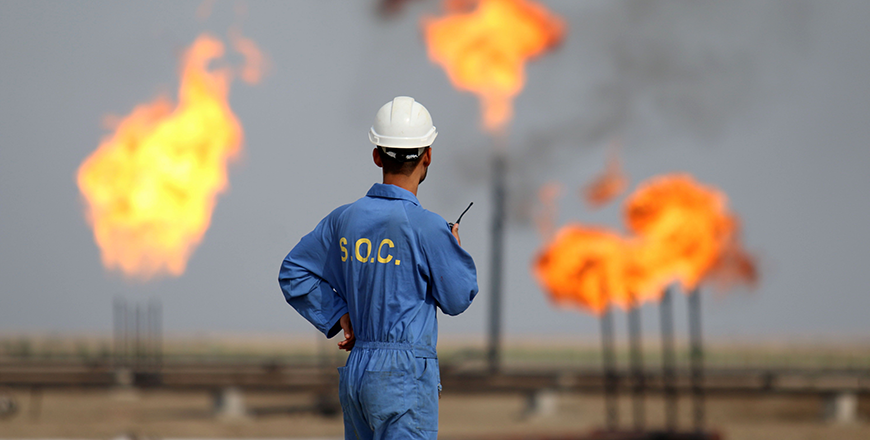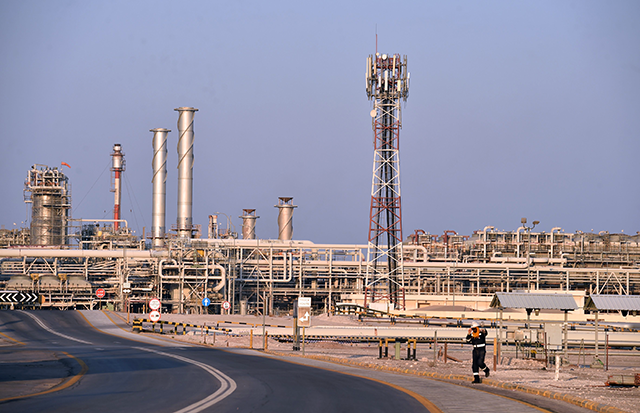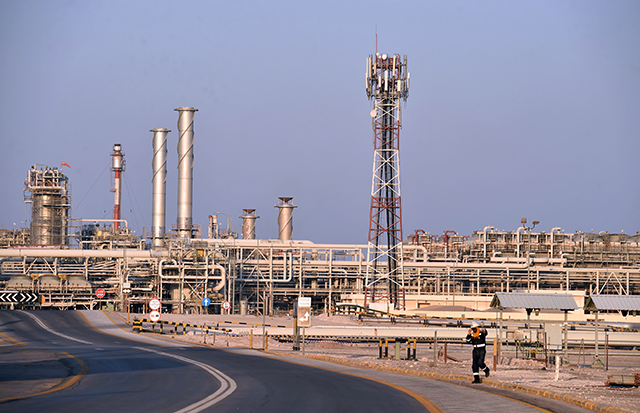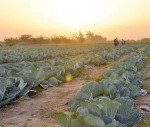You are here
As prices fall, what are the threats to oil giant Iraq?
Apr 02,2020 - Last updated at Apr 02,2020

An Iraqi oil worker speaks on a radio transciever at an oil refinery in the southern town Nasiriyah on October 30, 2015 (AFP photo)
BAGHDAD — As crude prices plunge, Iraq's oil sector is facing a triple threat that has slashed revenues, risks denting production and may spell trouble for future exports.
So what are the challenges facing the only significant industry in Iraq, as global oil prices fall to around $25 a barrel?
How will Iraq pay the bills?
The price crash means Iraq's monthly crude revenues were slashed by nearly half from February to just $2.99 billion in March.
The second-biggest crude producer in the OPEC oil cartel, Iraq pays international oil companies (IOCs) about $3 billion quarterly to extract its crude. With oil so cheap, the government is desperately looking to cut costs and delay payments.
Last week, the Basra Oil Company -- the state-owned firm coordinating production in the oil-rich southern province -- asked IOCs to accept a delay in six months' worth of payments and cut work budgets by 30 per cent, according to letters seen by AFP.
"A delay in first quarter payments is necessary, and we asked for the second quarter just in case," said Khaled Hamza Abbas, BOC's assistant director and a signatory to the letter, telling AFP that oil companies had yet to respond.
But IOCs are already taking independent action, according to internal letters seen by AFP.
Oil superpower ExxonMobil immediately asked sub-contractors to "reduce overall cost" with other firms asking suppliers for discounts.
"IOCs are cash-strapped," a source at the main operator in the south told AFP.
The trouble does not stop there.
IOCs expense Iraq at the end of each quarter for what it cost to extract crude, and the Iraqi government pays them in oil.
"With the lower prices, the government would have to use virtually all its crude to pay oil companies and would have barely enough to sell," a top Iraqi official told AFP.
Iraq relies on oil revenues for more than 90 per cent of state expenses. Its 2020 budget was based on an estimated barrel price of $56, more than twice the current rate.
How is coronavirus affecting production?
The spread of the novel coronavirus has severely disrupted rotations of key foreign nationals working at Iraq's oil fields, risking a drop in the usual 4.5 million barrel per day (bpd) production.
To stem the spread of the respiratory illness, Iraq has shut its airports and imposed a countrywide lockdown until at least April 19, although many expect an extension.
The Gharraf field in Dhi Qar province, which has produced up to 100,000 bpd, is offline after last month's evacuation of dozens of Malaysian workers by operator Petronas over COVID-19 fears, according to a source at the province's state-owned oil company.
Most foreign oil workers live on the fields in Basra, and are currently stuck there beyond their normal six- to eight-week rotations due to travel bans.
"We're seeking approvals for an exemption for foreign staff so that we can secure the rotating teams. These companies have internal rules and you can't keep the teams here for more than two months," said BOC's assistant director, Abbas.
A source from a major European oil firm operating in Basra told AFP a halt to foreign staff rotations would be a bigger threat to production than payment delays.
Britain's BP, too, would have to trim production if 4,000 British nationals working in the south could no longer travel.
"There are no two ways about it," a source with knowledge of BP's operations told AFP.
Who will buy Iraqi oil?
The third threat is a global drop in oil demand for the first time in a decade, with the International Energy Agency expecting 2020 demand to decrease by 90,000 bpd, a sharp downgrade from forecasts it would grow by more than 800,000 bpd.
"It has no equal in the history that we see such a strong decline in demand and a huge massive overhang of supply at the same time," IEA director general Fatih Birol told AFP.
Two countries facing shrinking demands are India and China, where Iraq sells "the lion's share" of its crude, according to geopolitical analyst Noam Raydan.
China, where the COVID-19 strain first emerged, is struggling through a huge economic slump and India just entered a three-week lockdown.
April would be a make-or-break month, said Raydan, but the outlook is bleak considering Iraq's main rival in Asian markets, Saudi Arabia, intends to flood the oil market this month just as OPEC production limits expire.
"Countries are stocking up on cheap oil. So even if we don't feel it now, the real problem will come in the next months when no one is buying," the Iraqi official said.
By Maya Gebeily
Related Articles
RIYADH — Saudi oil giant Aramco said on Friday it would market 8.5 million barrels per day (bpd) of crude from May under a producers' agreem
RIYADH — Saudi Arabia said on Monday it will raise its oil exports to a record 10.6 million barrels per day starting from May, escalating a
RIYADH — G-20 energy ministers held virtual talks on Friday as major oil producers scrambled to finalise output cuts to shore up prices, wit
















